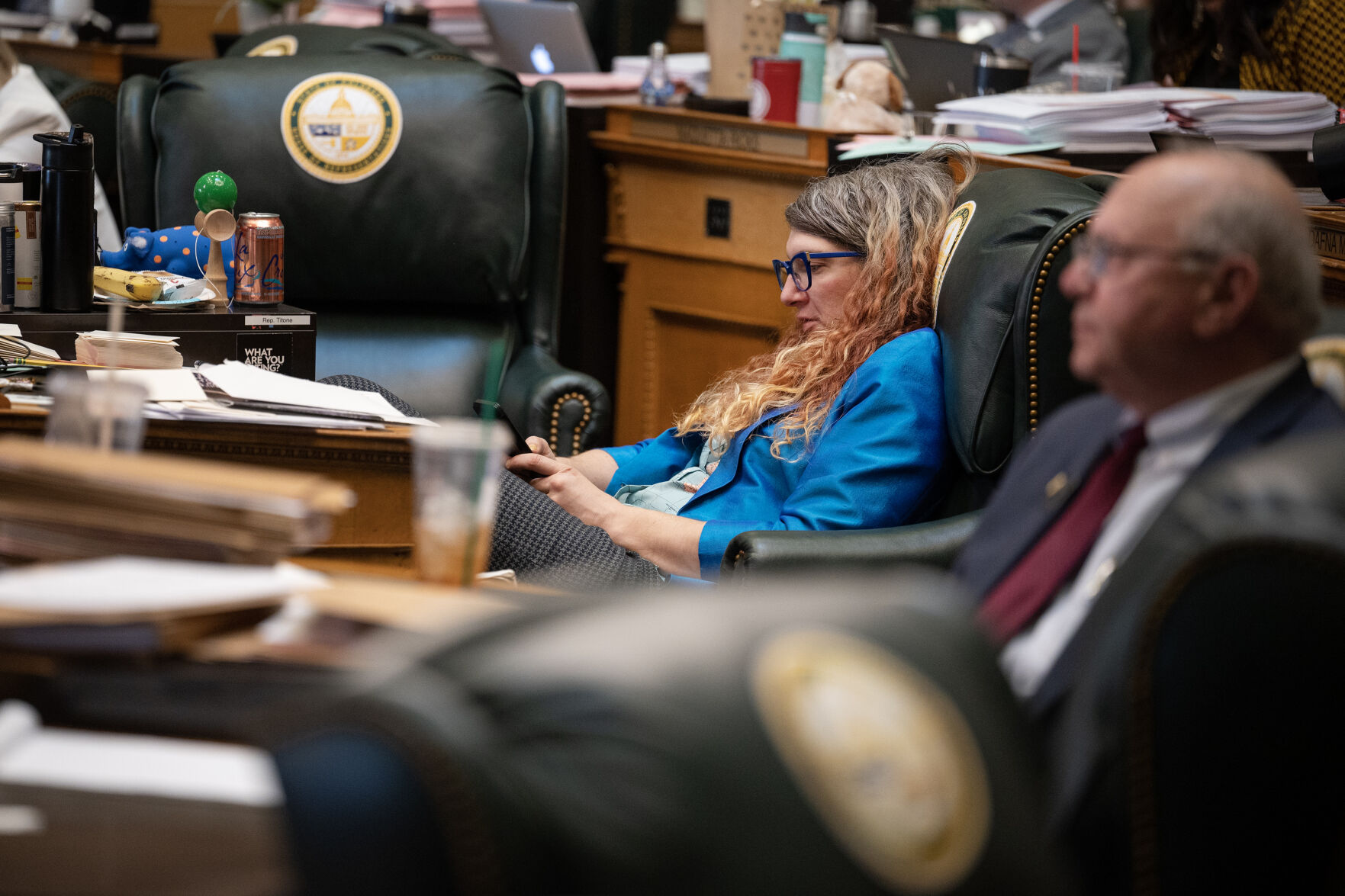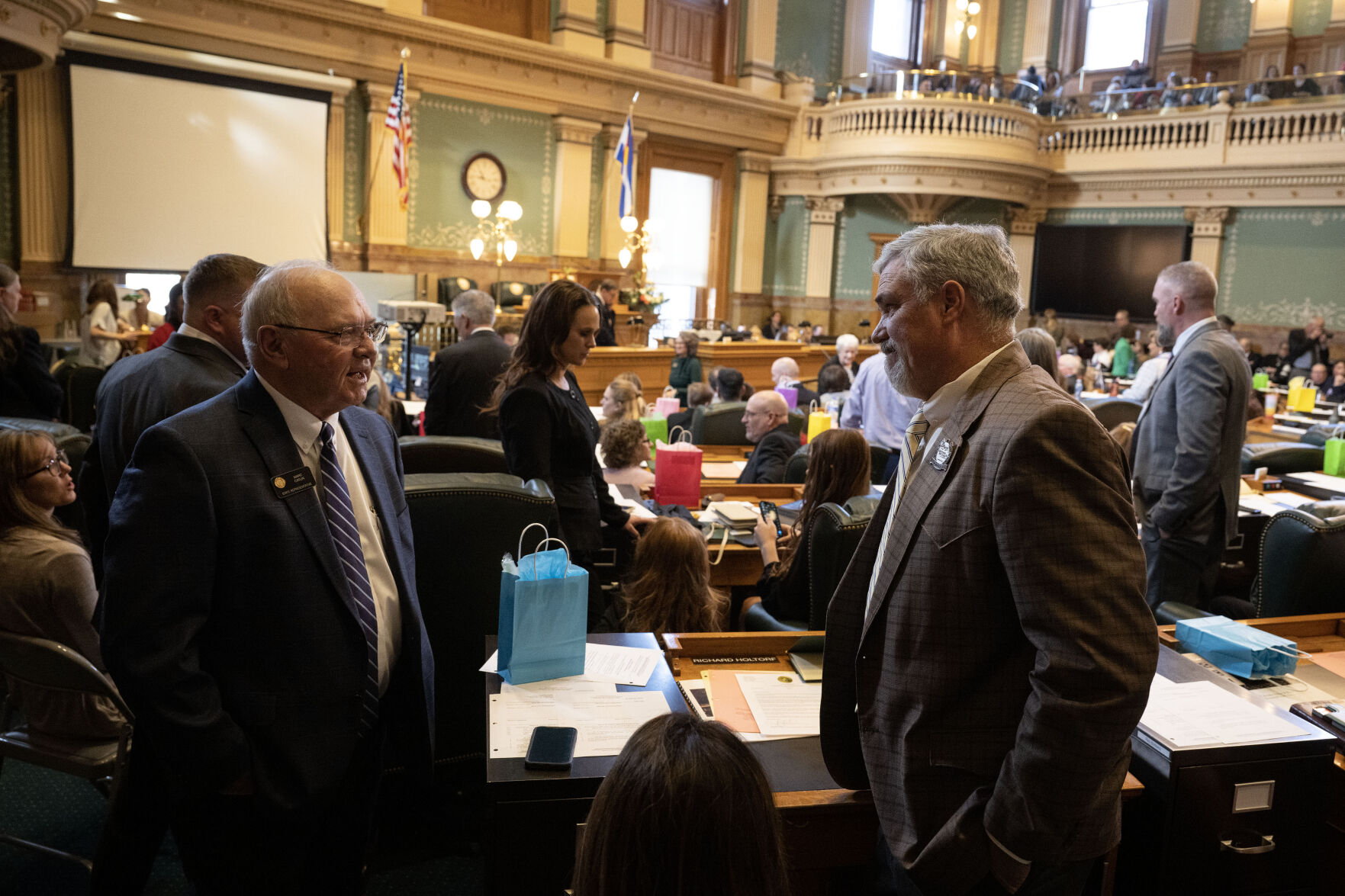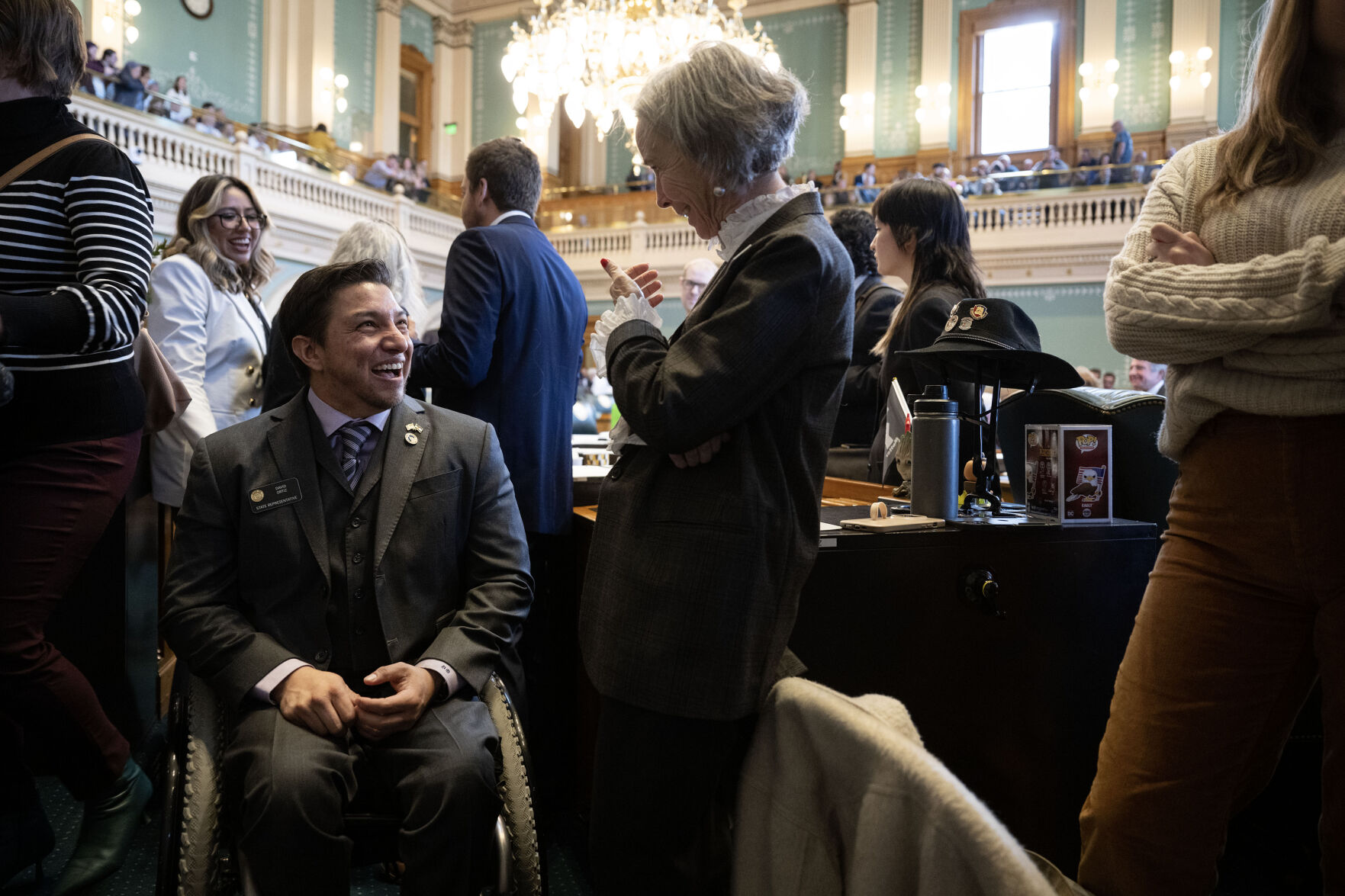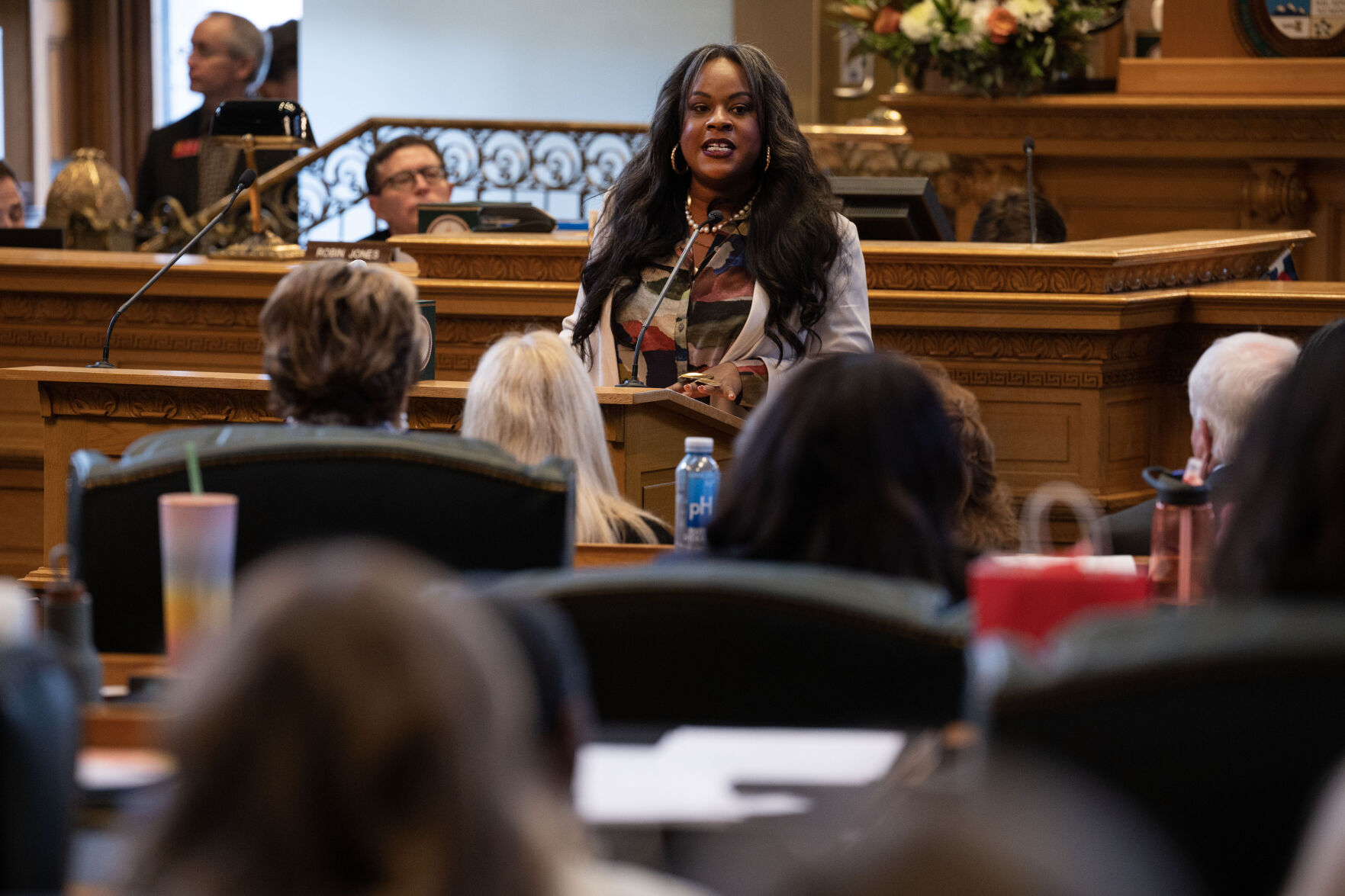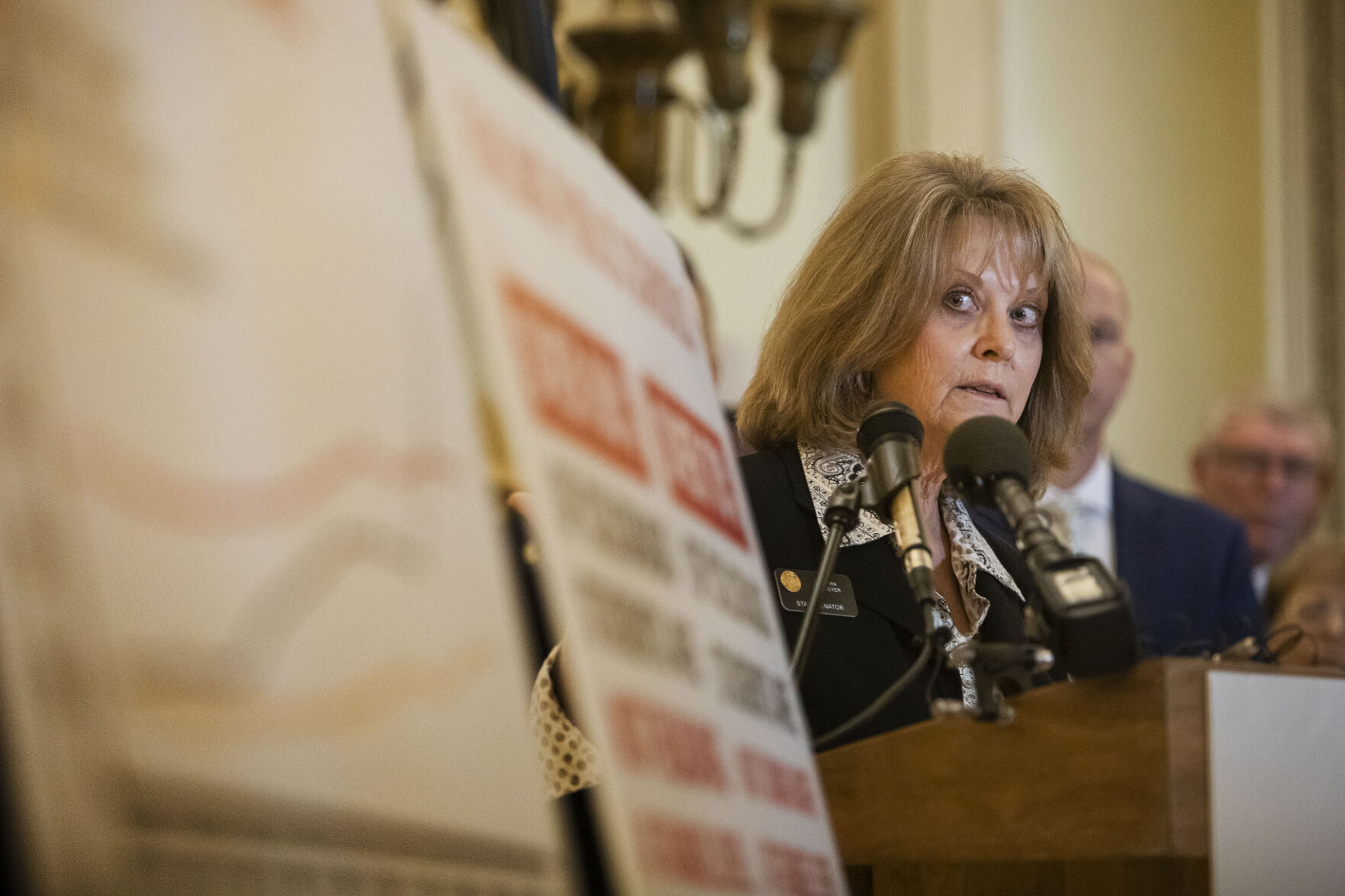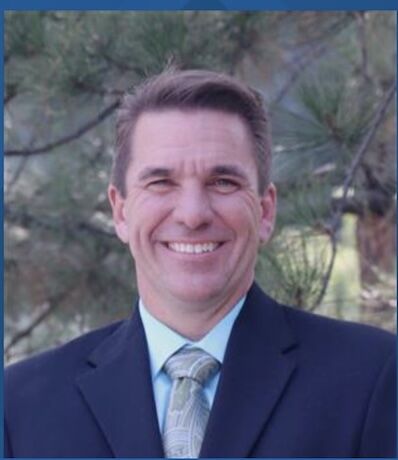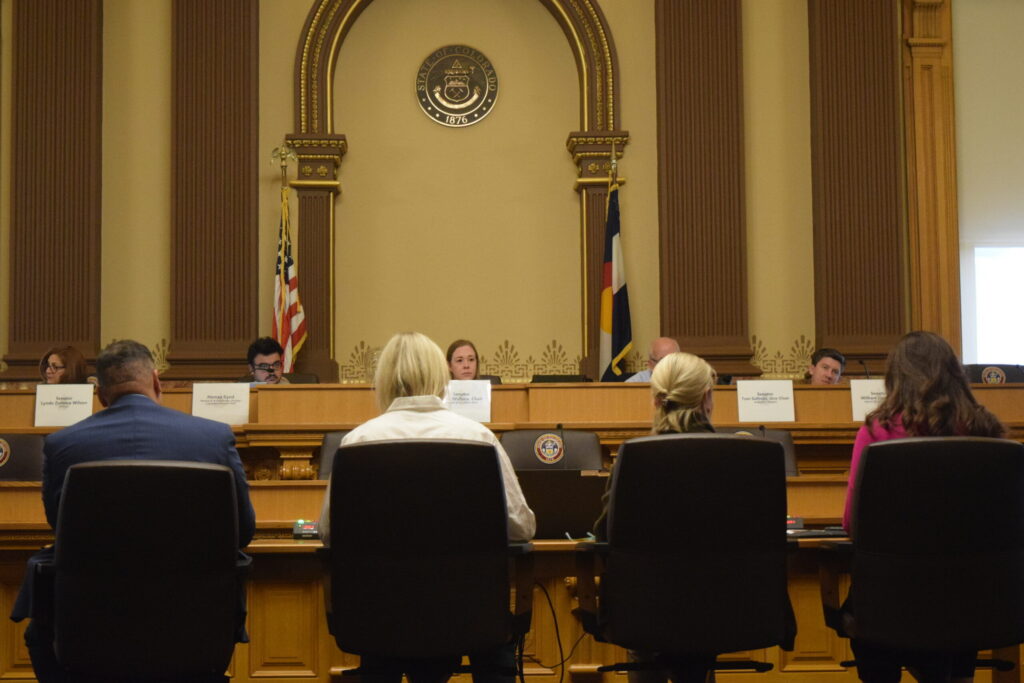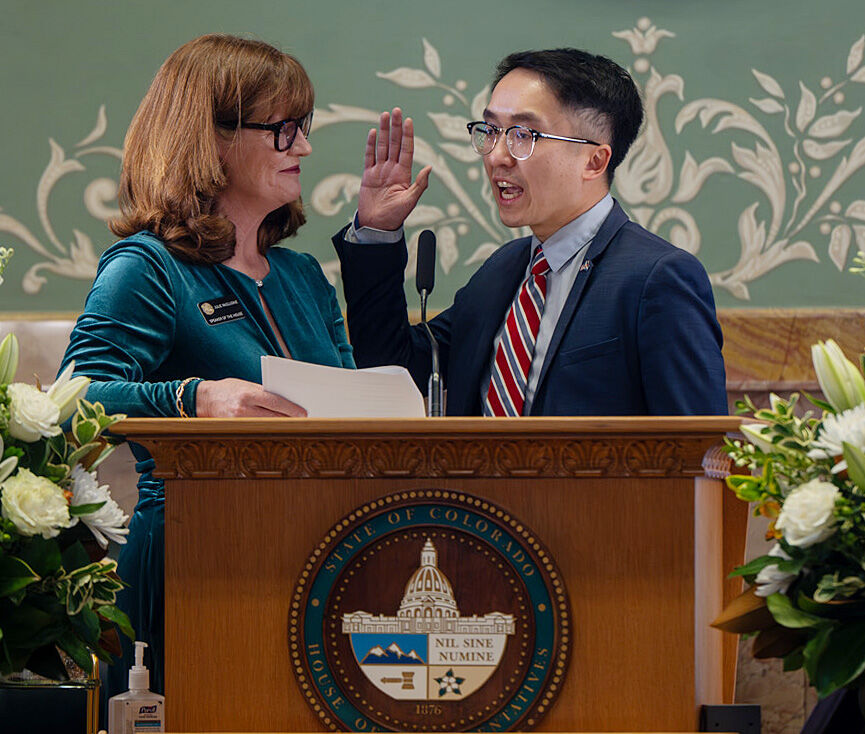Top 12 Issues | 2023 LEGISLATIVE SESSION
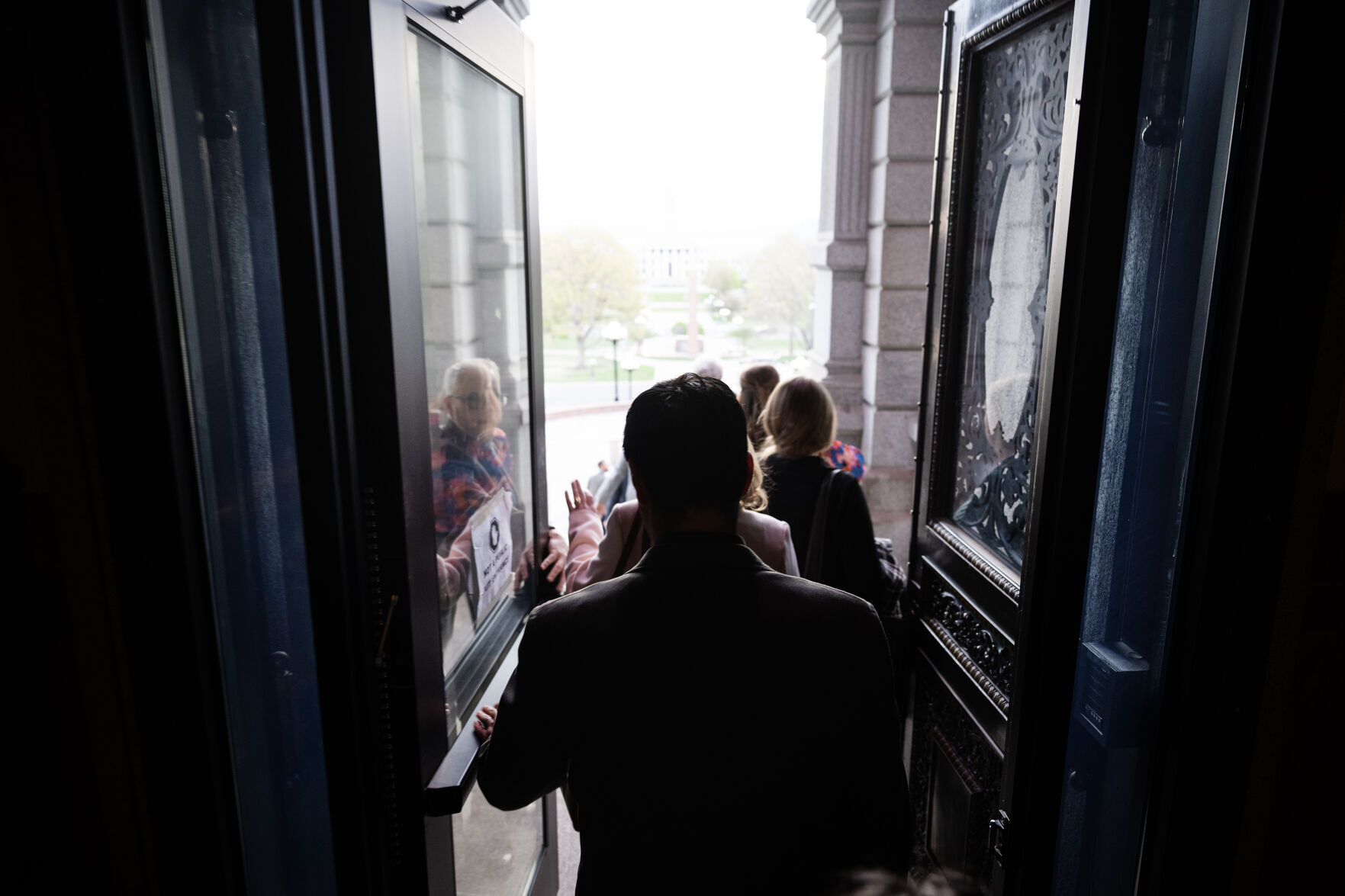
By the time Colorado lawmakers wrapped up their work on May 8, they tackled hundreds of proposals, ranging from mundane to monumental, in a session featuring flashes of acrimony, intraparty dissent and interparty filibustering.
But the 2023 session also saw stretches of cooperation and moments of levity, underpinned by the new reality at the state Capitol that Republicans are powerless to stop Democrats when they’re united, and the supermajority is deeply fractured on certain issues.
And, for the first time since becoming governor, Jared Polis tasted a major defeat on a signature proposal. It was made all the more stunning by coming on the heels of an election that saw him emerge with a sweeping mandate after winning by roughly 20 points.
Here are the top issues of the 2023 legislative session.
Abortion
One of the prevailing narratives out of the 2022 elections is that abortion, along with Colorado’s repudiation of Donald Trump, helped Democrats achieve sweeping victories and dramatic gains up and down the ballot. Those wins followed the U.S. Supreme Court’s decision in Roe v. Wade, in which the justices handed back regulation of abortion to the states.
Abortion also immediately catapulted to the front of the line at the state Capitol, where Democrats solidified Colorado’s reputation as a sanctuary state for abortion rights. They enacted measures to protect providers of abortion and services for transitioning genders from penalties from other states, expand health insurance coverage for abortion, sterilization and treatment of sexually transmitted diseases and prohibit what they deem to be “deceptive advertising” and the use of abortion “reversal” pills in crisis pregnancy centers.
Republicans staged filibusters to stop the proposals, sharply criticizing the bills – and the Democratic Party – as “radical and extreme.” Democrats countered that the measures are necessary and a reflection of Colorado’s political realities.
One Catholic healthcare provider, Bella Health, immediately went to court. It asked for a temporary restraining order and preliminary injunction against the legislation targeting “abortion reversal,” arguing the bill violates its right to religious exercise and its patients’ rights to receive treatment.
Under this new law, administering abortion reversal medication is unprofessional conduct in Colorado unless the state’s medical, nursing and pharmacy boards agree that it is a generally accepted practice.
In response, the Colorado Attorney General’s Office assured the courts that Bella Health would not be subject to adverse consequences because the government is choosing not to enforce the law immediately based on one of its requirements: that the state’s medical, nursing and pharmacy boards confer and decide first whether abortion reversal treatment is an acceptable practice. The case is on hold pending the boards’ evaluation of the practice.
Guns
The massacre at Colorado Spring’s Club Q, a LGBTQ+ nightclub, set the tone for gun-related legislation at the state Capitol.
Democrats lined up a slew of proposals they argue would curb gun violence. Republicans, greatly outnumbered in both chambers, deployed dilatory tactics to try and stop them – to little or no avail.
Ultimately, Gov. Jared Polis signed into law four gun bills and is expected to sign a fifth, calling them a “significant investment in making Colorado safer.”
And, right away, Second Amendment advocates challenged two measures in lawsuits, arguing they infringe on their right to keep and bear arms.
The gun bills include Senate Bill 168, which repeals previous state law that barred gun violence victims from suing firearms manufacturers and dealers; Senate Bill 169, which increases the minimum age for purchasing a firearm from 18 to 21, with limited exceptions; Senate Bill 170, which seeks to expand the state’s Extreme Risk Protection Order, known as the red flag law, by allowing district attorneys, higher education faculty and school teachers, as well as mental health or medical professionals to seek red flag petitions that would remove firearms from someone deemed to be a danger to themselves or others; and, House Bill 1219, which creates a three-day waiting period for delivery of firearm after purchase.
The legislature approved a proposal to ban “ghost guns,” which can be assembled with kits that include all or part of a gun, as well as created through 3-D printers. The legislation does not ban the sale of kits that do not include the frames or receivers, nor components that can be used to create a gun on a 3-D printer, so long as the components don’t include the frame or receiver.
Other gun bills fell by the wayside, notably a proposal pushed by progressive Democrats to ban “assault weapons.” The governor had indicated he didn’t want it on his desk.
Capitol protests
Two more violent episodes at a Denver high school brought to the fore the ubiquity of gun-related violence in Colorado, all the more starkly illustrated since the two incidents involved children.
In the first instance, 16-year-old Luis Garcia, a popular East High School soccer player, was shot after class and rushed to the hospital in critical condition. Garcia’s family said he had been planning a birthday party while sitting in his car along Esplanade, not far from East High’s front door. His family took him off life support March 1.
The second instance involved a 17-year-old student with a history of gun violence who underwent daily pat downs and shot two deans at East High School, police alleged. Austin Lyle fled in a car, which was found abandoned around 50 miles from Denver near Bailey in Park County, and, after a four-hour search, SWAT teams found his body not far away. The two school administrators have since recovered.
The two incidents, plus other cases of violence in the state and elsewhere in the country, brought hundreds of students to the state Capitol, demanding that legislators pass legislation to keep them safe.
The students returned to the Capitol several more times throughout the session. At one point, a group group of high school students shouted from the House gallery, while the chamber was debating bills on the floor, disrupting the action. That prompted House authorities to remove three young people from the gallery – one for causing the disruption and the other two for interfering with the State Patrol.
‘Fair workweek’ and predictable pay
No legislation drew in as much consternation from Colorado’s business community as the proposal to require retailers and companies in the hospitality industry to provide more predictable scheduling and a compensation system for “show-up time.”
House Bill 23-1118 underwent a seven-hour hearing in committee in February, when business owners showed up in force to testify against the measure. Ultimately, the bill failed to get out when Democrats on the panel joined Republicans in rejecting it, signaling the first major loss by the House Democrats’ more progressive wing.
The measure would have required an employer to provide written notice of an employee’s work schedule 14 days in advance. And shifts that get canceled at the last minute – such as for inclement weather – would have required the employer to provide “predictability pay” of up to two hours. The bill would also have required at least 12 hours between shifts, unless the employer obtains written consent for less than that. And existing employees must be given first right of refusal for additional hours before the employer can make new hires. Employees would have the right to request scheduling changes of all kinds.
The impetus behind the bill was straightforward – workers should have some level of guarantee that they can get their hours. But in the restaurant and hospitality industries, customers could decide not to show up and changes in weather conditions, among many things, could spell the difference between a busy night and a slow one.
Car theft
Polis implored legislators at the beginning of the year to curb car thefts, a crime in which Colorado is the worst in the nation.
Responding to that call, lawmakers passed legislation to tie auto theft to a suspect’s behavior, instead of to the value of the car.
Currently, the severity of criminal offenses for auto thefts in Colorado depends on the value of the stolen vehicle – ranging from a class 1 misdemeanor for a car worth $2,000 or less, to a class 3 felony for a car worth $100,000 or more. Critics of the old system said that effectively treated the poor and rich differently, while supporters said the new legislation, under which car theft would start out as a felony, eliminated that discrimination.
Under the new legislation, auto theft would be a class 5 felony at the baseline. It would become a class 4 felony if the thief alters the vehicle’s license plates, leaves the state, causes $1,000 or more in damages to the vehicle, injures someone or uses the vehicle in another crime. It would become a class 3 felony if the thief has two prior convictions for auto theft.
The bill would also create a class 1 misdemeanor offense for “unauthorized use of a motor vehicle” – stealing a vehicle but returning or recovering it within 24 hours without damage, which proponents called the “joyride provision.”
Ag equipment
Turning their attention to rural Colorado, lawmakers passed bipartisan legislation to give Colorado farmers access to resources needed to repair their own agricultural equipment.
Modern agricultural equipment often runs on advanced computer software, and currently, some manufacturers prohibit access to these systems or do not provide information on how they work. The legislation requires manufacturers to sell tools, parts and digital access to farmers and independent repair shops to diagnose and fix problems with equipment, beginning in 2024.
Some critics said they are worried about hurting manufacturers and dealerships of agricultural equipment that rely on revenue from repairs to stay in business. Others argued that right to repair is not even needed.
But farmers who testified in support of the bill told stories of having to wait weeks and pay thousands of dollars to manufacturers to conduct repairs they said they could have done themselves.
A provision would automatically repeal the measure if the federal government enacts legislation establishing the right to repair agricultural equipment and to allow memorandums of understanding to overrule the bill – if the memorandum is actively in effect and adequately gives owners the tools or information needed to repair their own equipment.
Critics have said the private sector is already handling the problem itself, pointing to the manufacturing company John Deere reaching a private agreement with the American Farm Bureau Federation in January.
Evictions
Colorado lawmakers shot down a proposal to prohibit landlords from evicting residential tenants without “just cause,” a priority for the Democrats’ progressive wing.
The proposal would have only allowed evictions or lease terminations if the tenant does something wrong, such as failing to pay rent or violating lease agreements. It would have also required landlords to give 90 days’ notice and pay tenants two to three months’ worth of rent to evict or terminate leases in no-fault circumstances, such as when landlords decide to renovate the property or to move in themselves.
Critics described the bill as too harsh on landlords and worried it would push them out of the rental market. They also said treating the decision not to renew a lease as an eviction forces landlords into endless leases, and the 90-day notice for terminating leases makes single-month leases functionally impossible to enforce.
Backers added extensive amendments to the original bill to help appease opponents, including reducing the required notice period from 120 days to 90 days; exempting mobile homes, short-term rentals and landlords who rent out part of their primary residence; and exempting small landlords from paying the relocation assistance.
Those change didn’t win over the opposition.
Lawmakers passed several bills this session that critics see as cracking down on landlords, including requiring mediation before eviction for tenants on government aid, capping fees for owning pets and limiting tenant income requirements and security deposits.
Utility costs
Coloradans faced crushing utility bills in the last several months, particularly during the winter. In the cold months, energy prices soared and customers paid double – in some cases, triple – the monthly rates.
Democrats seized on the complains and hunkered down to pass a proposal they say would curb Colorado’s skyrocketing energy prices. The bill seeks to lower costs of utility bills and reduce future volatility by making several changes to the regulation of Colorado’s investor-owned electricity and natural gas providers, such as Xcel Energy, including adjusting the expenses that are paid by utility providers versus customers.
In a January presentation, the state Public Utilities Commission reported that a typical Xcel Energy customer saw a 25% increase in their electricity bill and a 75% increase in their gas bill compared to the same time last year.
In response, the state legislature convened a special committee in February to investigate the spikes in utility prices, with the legislation coming out of that investigation, sponsors said.
Under the bill, utility providers would have to file a gas risk management plan, including a monthly cap on fuel charges. It’s intended to stabilize utility bills by spreading out cost increases to a few cents per month over several years, instead of increasing bills by dozens of dollars in a single month, sponsors said. Utility providers would also be prohibited from charging customers to pay for advertising, lobbying, political contributions and other activities. And the bill would require the PUC to by 2025 establish rules to ensure that utility providers have financial incentives to keep fuel costs down.
State officials attributed rising utility prices largely on the cost of natural gas, which increased by 40%, and the use of natural gas, which rose by 30%.
But they also cited two state actions that directly increased utility prices: rate hikes approved by Colorado energy regulators, and the state allowing Xcel to charge customers $500 million for fuel costs incurred during a four-day winter freeze in 2021. SB 291’s required gas risk management plan is meant to prevent those kinds of impacts in the future.
Wolves
Gov. Jared Polis strongly hinted earlier on that he is not a fan of legislation that would have required Colorado to wait for a federal rule before reintroducing wolves on the Western Slope, although he agrees with the idea of obtaining the rule.
True enough, Polis vetoed the bill, arguing it would prevent Colorado Parks and Wildlife Commission from authorizing the release of gray wolves until after the effective date of what’s called the 10(j) rule. He called the bill unnecessary, that it undermined voters’ intent, as well as the commission’s work, and suggested it could interfere with the state “successfully receiving experimental population designation.”
The federal agency has been working for nearly a year on the process for granting Colorado the 10(j) ruling, which is a waiver tied to the Endangered Species Act, and has indicated it should be issued no later than mid-December, although that’s cutting it pretty close for those who will see wolves reintroduced in their counties.
The provisions outlined in the vetoed legislation followed what every other state that has reintroduced wolves has done – which is to ensure they obtained a 10(j) ruling in place first.
Here’s why that’s crucial: Under the 10(j) ruling, wolves would be classified as an nonessential experimental population. That would allow them to be managed by Colorado Parks and Wildlife, which worked for two years on the wolf restoration plan. Part of the CPW plan allows for “lethal takes,” which would grant a rancher limited permission to kill wolves that are preying on livestock. Without 10(j) rule – and with wolves remaining on the endangered species list in Colorado – killing a wolf, even if it is attacking livestock or pets, is a felony, punishable by up to a year in jail and up to a $50,000 fine.
Social media
Colorado lawmakers, both from the left and right of the political spectrum, waded deep into technology, transparency and a free press – by allowing themselves to block their constituents on social media.
The proposal gives all elected officials in the state the power to block someone from viewing or interacting with an official’s social media pages – for any reason. This would apply to their personal social media accounts, even if they use them for official business, but not accounts attached to a specific political office.
The Supreme Court is already hearing two cases regarding whether it is unconstitutional for elected officials to block people on social media. Courts throughout the country have deliberated on the issue for years.
Colorado lawmakers’ action aligns Colorado with the 6th U.S. Circuit Court of Appeals’ ruling in Lindke v. Freed. The court last year ruled that an elected official can block individuals from their social media account if the account isn’t paid for by government funds, if the official has no legal duty to have an account, and if the account remains with the official after they leave office.
However, court rulings have been inconsistent regarding whether the First Amendment restricts public officials from blocking private individuals on social media.
In Colorado, these kinds of cases have largely resulted in settlements. Senate President Leroy Garcia, state Sen. Ray Scott, Lafayette Mayor Christine Berg and Thornton Council Member Jan Kulmann were all sued for blocking or limiting constituents on social media. In all four of those cases, the elected officials settled out of court and agreed not to block constituents in the future.
Property taxes
Much of the drama in the last few days of session focused on late-minute proposals by Democrats to tackle soaring property tax valuations, which, without state action, would mean Coloradan property owners would see their tax liability increase by as much as 50%.
Waiting until the very last few days of the session, Democrats offered two solutions: Ask voters this November for permission to raise what’s called the Referendum C cap by 1% and keep that additional revenue for a 10-year period. That would generate about $167 million per year, which, in turn, would be funneled to local governments to hold them harmless from reductions in property tax revenue.
They also approved an accompanying legislation that equalizes TABOR refunds to $661 for single filers and $1,322 to joint filers, but only if voters approve the ballot measure from the property tax bill.
Republicans – angered by what they described as the bill’s attempt to bribe Coloradans to vote for the ballot measure – walked out of the House chambers in protest and refused to vote on the sweeping tax proposal.
The skyrocketing property taxes resulted in part to the voter-backed repeal of the Gallagher Amendment in 2020 and rising home values, with some counties reporting increases of 50%, raising worries that many, particularly older Coloradans on fixed income, would get priced out of their homes.
Housing
For the first time since taking office, Polis failed to persuade lawmakers to pass a priority – housing, which he had mentioned 37 times during his State of the State address in January.
The governor’s signature housing proposal – which sought to impose state mandates and effectively strip local governments of their authority over land use and zoning – died after negotiations failed to find a compromise between the Senate and House versions.
The bill ran into a wall in the Senate, which effectively gutted it, turning the measure into a watered-down requirement for a statewide housing needs assessment. House Democrats then restored substantial portions of what had been gutted when the bill returned to their chamber, setting up a showdown with the Senate and ultimately dooming the legislation.




